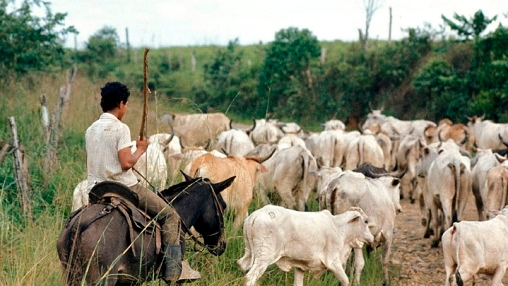“Buy something from me,” says a little boy to a couple sitting in a coffee shop in one of the popular, trendy neighborhoods of Mexico City. He is selling little colorful figurines. He goes from table to table instead of playing with the toys he is showing. From his looks, he cannot be older than seven or eight.
This is a scene that is still too often seen in Mexico.
And with reason: millions of minors work in the country, and 870.000 of them are under 13 years old.
However, the number of children that work, whether paid or not, has decreased in the last decade, partly because parents had a better education, and partly because of social programs like Oportunidades, that gives cash to families that keep their children in school.
A joint study of the World Bank, the International Labor Organization and UNICEF, shows that this is a positive trend, although the issue is still pressing and specific policies are needed.
Who are the children that work?
There are almost twice as many children in the countryside that work than in the city. Also, more of them work in States like Guerrero, in the South, (where 12% of six-to-13-years-old work), than in Chihuahua, in the North (where only 1.4% of children work).
The older the child becomes, the more likely it is to drop school and start working. For example, a third of 17 year old Mexicans work.
Many kids who work go to school at the same time. This has consequences on their academic performance and on their health, especially if they are very young: they spend less time on their school activities, and less time resting or playing.
This means they are less likely to have a higher-paid, formal job in the future.


